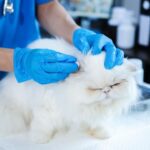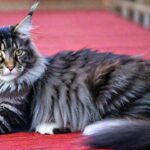Cats are beloved members of our families, and as responsible pet owners, it’s essential to ensure they receive the best care, including a well-balanced and nutritious diet. A healthy diet plays a crucial role in keeping your feline friend happy and thriving. In this comprehensive guide, we’ll delve into the world of cat nutrition, exploring what makes a healthy cat diet, discussing various feeding options, and offering tips for maintaining your cat’s overall well-being.
Contents
Healthy Diets for Cats
| Aspect of Cat Diet | Key Consideration |
|---|---|
| Protein | Cats require a high-protein diet for muscle growth and overall health. Animal proteins like chicken, turkey, and fish are excellent sources. |
| Fat | Cats need fat for energy and to absorb fat-soluble vitamins. High-quality sources include poultry, fish, and oils. |
| Carbohydrates | Unlike dogs, cats don’t need a significant amount of carbohydrates in their diet. Protein and fat serve as sources of energy for them. |
| Vitamins and Minerals | Cats need various vitamins and minerals, including taurine, vitamin A, and vitamin D. Inadequacies may result in serious health complications. |
| Water | Cats have a low thirst drive and need a moist diet. To prevent dehydration, it’s essential to ensure a continuous provision of clean, fresh water. |

Understanding Cat Nutrition
Before we dive into the specifics of healthy diets for cats, it’s essential to understand their nutritional requirements. Cats are obligate carnivores, which means they must consume animal-based protein to thrive. Their nutritional needs include:
- Protein: Cats require a high-protein diet. Protein provides essential amino acids necessary for muscle growth and overall health. Animal proteins like chicken, turkey, and fish are excellent sources.
- Fat: Cats need fat for energy and to absorb fat-soluble vitamins. Fats should come from high-quality sources like poultry, fish, and oils.
- Carbohydrates: Unlike dogs, cats don’t need a significant amount of carbohydrates in their diet. Energy can be sourced from protein and fat.
- Vitamins and Minerals: Cats need various vitamins and minerals, including taurine, vitamin A, and vitamin D. Deficiencies in these nutrients can lead to severe health issues.
- Water: Cats have a low thirst drive and need a moist diet. Always ensure a fresh supply of clean water is available to prevent dehydration.
Now that we understand the basics of cat nutrition, let’s explore different dietary options for your feline companion.

1. Commercial Cat Food
Commercial cat food is the most convenient option for many cat owners. It is available in various forms, including dry kibble, canned, semi-moist, and freeze-dried. When choosing commercial cat food, it’s crucial to read the label and opt for high-quality brands that meet the nutritional needs of your cat.
a. Dry Cat Food (Kibble): Dry cat food is cost-effective and has a longer shelf life. However, it typically contains more carbohydrates and less moisture than other options. This can be a concern for cats prone to urinary tract issues.
b. Canned Cat Food: Canned cat food is high in moisture, making it an excellent choice for cats. It can help prevent urinary tract problems and provides a more natural source of hydration. Look for brands with high protein content and minimal fillers.
c. Semi-Moist Cat Food: Semi-moist cat food is less common but can be a suitable option. Ensure it’s nutritionally balanced and doesn’t contain excessive sugars or artificial additives.
2. Homemade Cat Food
Some cat owners prefer making their cat’s food at home to have more control over the ingredients. While this can be a viable option, it’s essential to consult with a veterinarian or feline nutritionist to ensure you’re meeting all of your cat’s dietary requirements. Homemade cat food can include a combination of cooked meats, organs, and supplements like taurine to meet nutritional needs.
3. Raw Cat Food
Raw cat food, also known as the “raw diet” or “BARF” (Biologically Appropriate Raw Food), consists of uncooked meats, bones, and organs. Advocates of the raw diet believe it closely mimics a cat’s natural diet. However, it’s essential to handle raw food safely to prevent bacterial contamination. Consult with a veterinarian or feline nutritionist to create a balanced raw food diet.
4. Grain-Free and Limited Ingredient Diets
Some cats may have food allergies or sensitivities. Grain-free and limited ingredient diets are designed to cater to these needs. However, it’s crucial to note that grain-free diets have been associated with heart issues in some cats. Always consult your vet before switching to a specialized diet.
Maintaining a Balanced Diet
Regardless of the diet you choose for your cat, it’s essential to ensure it’s balanced and meets your cat’s specific needs. Here are some tips for maintaining a healthy diet:
- Portion Control: Avoid overfeeding, which can lead to obesity and related health problems. Follow the feeding guidelines provided on the cat food label and adjust according to your cat’s age, activity level, and health status.
- Monitor Weight: Keep an eye on your cat’s weight and body condition. If you notice significant weight gain or loss, consult your veterinarian to make necessary dietary adjustments.
- Consistency: Cats thrive on routine. Feed your cat at the same times each day to establish a consistent feeding schedule.
- Fresh Water: Ensure your cat has access to clean, fresh water at all times. Dehydration can lead to health issues, so don’t neglect this aspect of their diet.
- Treats in Moderation: Cat treats can be used for training and as occasional rewards, but they should not constitute a significant portion of your cat’s daily calorie intake.
Common Diet-Related Health Issues
Maintaining a healthy diet for your cat is essential to prevent various diet-related health issues. Some of these issues include:
- Obesity: Overfeeding and a lack of exercise can lead to obesity, which increases the risk of diabetes, joint problems, and heart disease.
- Urinary Tract Problems: Insufficient water intake and a high-carbohydrate diet can lead to urinary tract issues, including urinary crystals and blockages.
- Diabetes: Obesity and a high-carbohydrate diet can contribute to diabetes in cats. Maintaining a proper diet and weight is essential for prevention.
- Dental Problems: Feeding your cat a diet exclusively consisting of soft food can lead to dental issues. Dry kibble can help maintain dental health, but regular dental care is also important.
- Food Allergies: Some cats may develop food allergies or sensitivities, leading to digestive problems, skin issues, and more. A limited ingredient diet may be necessary in these cases.
- Gastrointestinal Upsets: Sudden dietary changes can cause gastrointestinal problems. Always transition to a new diet gradually.
The 5 Cutest Cats in the World
Conclusion
In summary, providing your cat with a healthy diet is crucial for their overall well-being. Understanding your cat’s nutritional requirements and choosing the right diet is the first step. Whether you opt for commercial cat food, homemade meals, a raw diet, or a specialized diet, always consult with your veterinarian or a feline nutritionist to ensure your cat’s dietary needs are met.
Remember that your cat’s diet is just one aspect of their care. Regular veterinary check-ups, exercise, and a loving environment are equally important for keeping your feline friend happy and healthy. By making informed choices and paying attention to your cat’s individual needs, you can help them live a long, **happy
FAQs:
Q1: What are the essential nutrients for a cat’s diet?
A1: Cats require protein, fat, vitamins, minerals, and water for a well-balanced diet.
Q2: Can I feed my cat a vegetarian diet?
A2: Cats are obligate carnivores, and a vegetarian diet can lead to nutritional deficiencies. It’s best to provide animal-based protein.
Q3: How can I transition my cat to a new diet?
A3: Slowly mix the new food with the old food, gradually increasing the proportion of the new diet over several days to avoid gastrointestinal upsets.
Q4: What is the significance of taurine in a cat’s diet?
A4: Taurine is an essential amino acid for cats. A deficiency can lead to heart and vision problems, making it a critical nutrient in their diet.
Q5: Are there specific cat food brands you recommend?
A5: While there are many reputable brands, it’s important to choose those that provide high-quality ingredients and meet your cat’s nutritional needs.












1 thought on “The 5 Secrets of Healthy Diets for Cats”